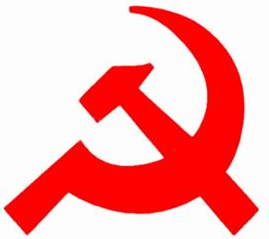N° 21 février 2022 In early January is created in Asia the largest free trade area in the world : the Regional Comprehensive Economic Partnership (RCEP)(1).
It will be the largest free trade area in the world. RCEP provides for a gradual reduction in tariffs of 90% over a period of twenty years. With twenty chapters the agreement also covers non-tariff barriers, but does not include any binding rules or clauses on the environment, the labor market, intellectual property or even state subsidies. A road map has been set for the harmonization of standards and rules, particularly in the sanitary and phytosanitary areas to which an entire chapter is devoted.
According to Hanns G. Hilpert, head of the Asia department at the German Institute for International and Security Affairs: "The establishment of common rules of origin, combined with the reduction of customs tariffs, will facilitate the creation of value chains in the region ". Economists are counting on an effect relating to an increase of 0.2% in the GDP of the economies concerned and 2% in the volume of their trade to the detriment of trade with the rest of the world. Again according to Hilpert this agreement should encourage foreign investment in the region, outside of China: "RCEP will encourage European companies to invest in Southeast Asia and use it as a new base for exports to the rest of the world, while maintaining a presence in China to take advantage of its internal market". It is clear that although this free trade agreement does not formally contain any element of political commitment and therefore leaves the States concerned free to choose their economic and social development as well as their military alliances, it will be dominated by the major signatory powers: China, Japan and Australia. China’s gains are political. China pushed for the finalization of negotiations in particular to fill the void left by the abandonment by the United States of Donald Trump of a competing project, the Trans-Pacific Free Trade Treaty (TPP) promoted by his Democratic predecessor, Barack Obama. RCEP is a response to the rise of protectionism in Europe and the United States. It is a way of advancing the liberalization of trade as negotiations between the 164 member countries of the World Trade Organization are difficult and the United States is waging an economic war against China and especially in the technological fields where it intends to maintain its leadership; a war to which China is responding by modernizing and refocusing part of its activity while ensuring better protection and control of the capital of its large companies. This free trade area alone, which notably includes China, Japan, Australia, New Zealand and South Korea, as well as the ASEAN(2) countries represents a third of the global gross domestic product (GDP) and a third of the planet's population. This will form the world’s largest trade bloc. This means that it marks the rise of capitalism in Asia and correlatively the displacement of confrontations within imperialism in this region. This is what we highlighted in an article recently published on our site(3)
This last point is one of the developments that have marked the last decade and will be further accentuated in the years to come.
The signing of free trade agreements and the constitution of more economically, socially and politically integrated capitalist centers does not signify, and one may add on the contrary, the end of capitalist competition for the control of raw materials, communication channels and the work force. On the contrary, it confirms the exacerbation of these competitions in the rapidly changing balance of power on a global scale. These realities are patent on all continents. This is the case in the Indo-Pacific zone where one of the major countries of the free trade agreement, Australia has just joined a military alliance with the USA and the United Kingdom to counter China and this policy resulted into a reversal of its choices in terms of armaments to the detriment of France(4). In Europe too, an intense battle is being waged on energy issues, existential issues that see different strategies clash, particularly between France and Germany. Thus, far from leading to a harmonious, happy and peaceful globalization, these large capitalist groups, while they reflect the acceleration of the international division of labor in the capitalist system, are nonetheless conflicting entities.
These questions are completely evacuated from the political debate because otherwise it would be necessary to clearly situate oneself in relation to capitalism itself and this is not the intention of all the political forces of capital nor of those who, while contesting the politics of the moment do not want to tackle the basic question: who rules and in whose interests. On the contrary, as a party for the revolutionary change of society, we point to the necessity of the political and social struggle against capitalism and its development imperialism.
(2) ASEAN: Association of Southeast Asian Nations: Brunei, Burma, Cambodia, Indonesia, Laos, Malaysia, Philippines, Singapore, Thailand and Vietnam.


